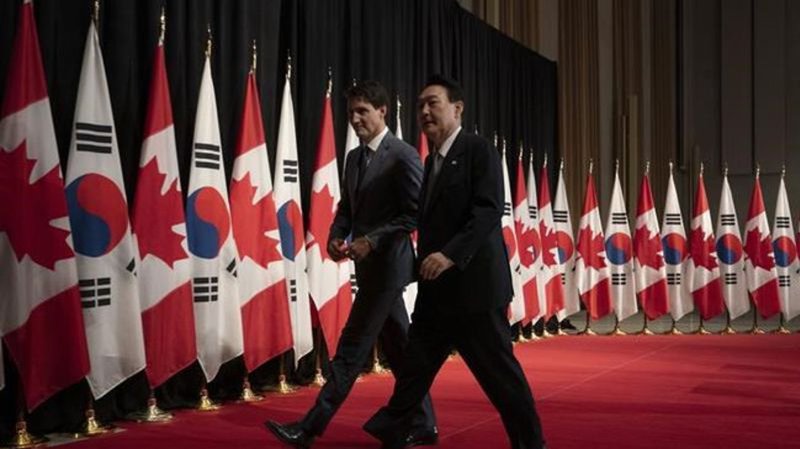
Trudeau heads to Asia for weeklong trip : In The News for May 16
In The News is a roundup of stories from The Canadian Press designed to kickstart your day. Here is what’s on the radar of our editors for the morning of May 16 …
What we are watching in Canada …
Prime Minister Justin Trudeau left Monday evening for a weeklong trip to Asia, where he will make his first official visit to South Korea and attend the G7 leaders’ summit in Japan.
The trip comes at a time when the world is collectively facing security threats and economic uncertainty magnified by climate change.
